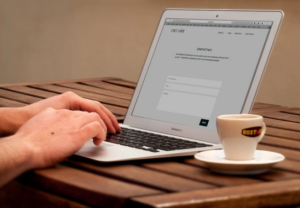Getting one’s website ranking higher in search engine results pages is no easy feat. At thekatynews, you’ll find the best alternatives to grow traffic. But if you want to fix your SEO effort, it’s time to pay attention to your technical SEO crawling issues.
From slow page load times to improper implementation of schema markup, these problems can negatively impact your organic growth. But don’t worry – we’ve got you covered. In today’s post, we’ll go over the top technical SEO crawling issues and how to fix them for better organic growth. So let’s dig in and start optimizing.
Slow Page Load

Slow page load times are a major issue that can hinder your website’s SEO performance. When pages take too long to load, it leads to poor user experience and high bounce rates. This means users may leave your site before even seeing the content you’ve worked so hard on. One common cause of slow page load times is large image files. High-resolution images may look great, but they can significantly slow down your website if not optimized properly. Be sure to compress and resize all images for optimal loading times.
Another factor contributing to slow page loads is the excessive use of plugins or scripts on your website. Each plugin or script requires additional resources from the server leading to slower loading times overall. Consider cutting back on unnecessary plugins and scripts for faster speeds.
Improper Implication of Schema Markup
 Schema markup is a form of microdata aiming to help Google, and others get the point of the content on your website. It’s an essential part of technical SEO, but many websites fail to implement it correctly. This is usually due to improper implications.
Schema markup is a form of microdata aiming to help Google, and others get the point of the content on your website. It’s an essential part of technical SEO, but many websites fail to implement it correctly. This is usually due to improper implications.
This can happen when webmasters use incorrect or outdated schemas for their content or fail to include all necessary properties and values. When this happens, search engines may not be able to fully comprehend the information on your site, potentially leading to lower rankings and less organic traffic. To avoid these issues, ensure you’re using up-to-date schemas appropriate for each type of content on your site. Additionally, only add relevant schema markup where it makes sense for users, and don’t go overboard with unnecessary tags.
The Flagging of Duplicate URLs and Canonical Issues
 Duplicate URLs and canonical issues are prevalent problems in the world of technical SEO. These issues can significantly hinder your website’s organic growth, as search engines may struggle to identify which version of a page should be indexed or displayed in search results. Flagging duplicate URLs is crucial because they divide the value of backlinks between multiple-page versions. This dilution can negatively impact your site’s authority and ranking potential. Implementing proper canonical tags ensures you’re consolidating link equity into a single URL, boosting its ranking potential.
Duplicate URLs and canonical issues are prevalent problems in the world of technical SEO. These issues can significantly hinder your website’s organic growth, as search engines may struggle to identify which version of a page should be indexed or displayed in search results. Flagging duplicate URLs is crucial because they divide the value of backlinks between multiple-page versions. This dilution can negatively impact your site’s authority and ranking potential. Implementing proper canonical tags ensures you’re consolidating link equity into a single URL, boosting its ranking potential.
Regularly auditing your website using crawling tools like Screaming Frog or DeepCrawl will help identify instances where duplication occurs and highlight any improperly implemented canonical tags. By addressing these issues promptly, you’ll improve both user experience and search engine performance – driving better organic growth for your website in the long run.
As the bottom line, a well-optimized website will enhance user experience, which results in increased traffic, higher engagement rates, and more conversions leading to better ROI. Regular monitoring of your site’s technical health is highly recommended, as it helps identify any potential issues before they become critical.
